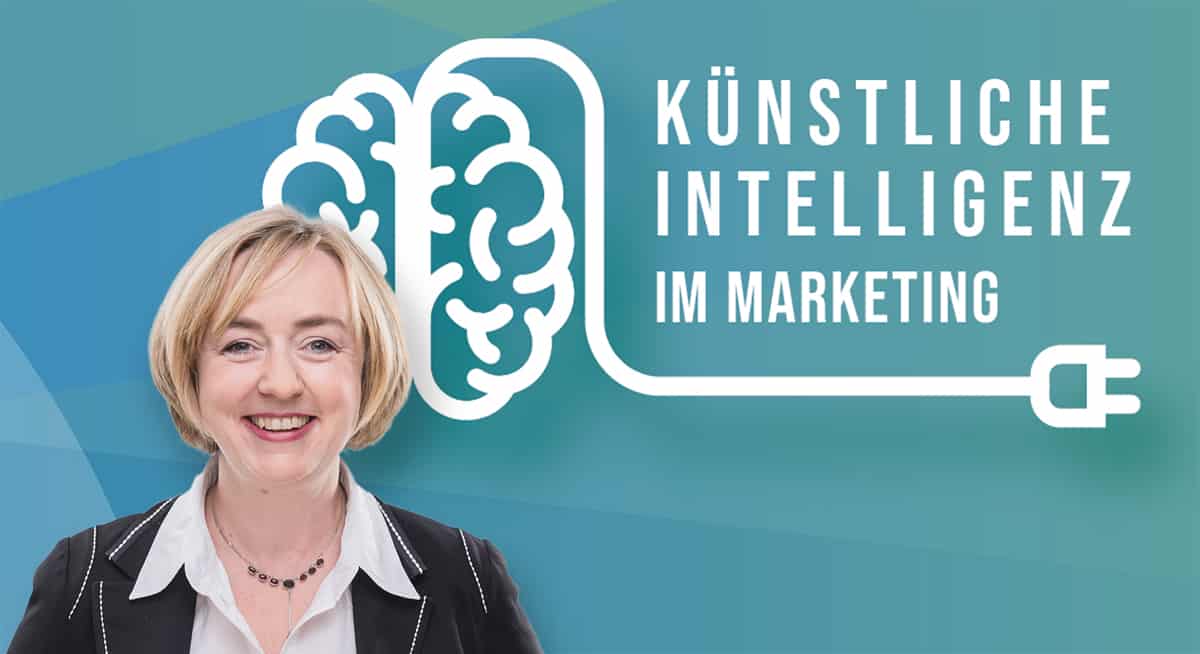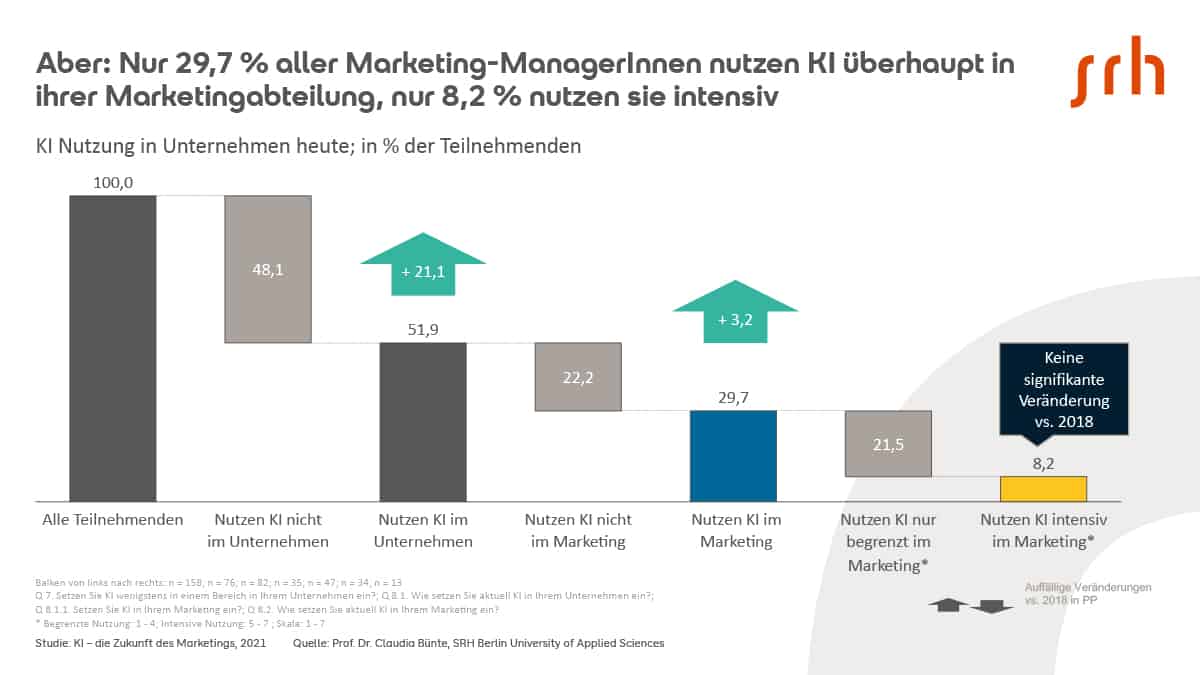The use of AI in marketing 2021: 5 obstacles and 1 bright spot
AI in marketing continues to fall short of perceived opportunities, as the DACH study "Artificial Intelligence - the Future of Marketing" shows. Five obstacles stand out as reasons for this. If companies overcome them, AI in marketing could pick up speed in a short time.
For the third time, following surveys in 2018 and 2019, Prof. Dr. Claudia Bünte, marketing expert at SRH Berlin University of Applied Sciences, surveyed marketing managers in the DACH region. 158 experts took part in the third wave of the survey, 72 percent of them managers.
The study again shows that a majority - around 91 percent - see great opportunities for companies and for marketing in artificial intelligence. But still only 8 percent of respondents also use AI in marketing on a daily basis. As in 2019, that's not a significant increase over 2018. There appears to be a clear disconnect in marketing between the perceived potential of AI and its use in practice. "The current use of AI still falls short of the possibilities," says Bünte.
Increasingly positive attitude toward AI
But - and this is new: In the details, one can definitely see a development toward more use of AI: For marketing managers, AI is losing its nimbus of the spectacular and is turning positive: Almost 95 percent, for example, say that AI will be important for marketing tasks in the near future. The number of AI skeptics among the respondents has fallen significantly by a good 17 percentage points in just three years and now accounts for only around 10 percent - by contrast, the proportion of the five other identified manager types who have a fundamentally positive attitude toward AI is also growing significantly.
This also increases the intention to use AI: managers want to use significantly more AI in all five core marketing tasks in the near future - 54.4 percent more on average. "AI is therefore close to the tipping point of unleashing its potential in marketing," Prof. Bünte continues, "but something is still holding back its use. This time, we wanted to know what that is."
Information and experience deficit, different attitudes
The analyses show that there are five reasons that prevent managers from using AI according to its actual potential: According to their own assessment, knowledge about AI is rather low. Although attitudes toward AI are changing positively, there are still skeptics. The AI assessments of managers and employees in the same team differ significantly, the focus on data is only slightly pronounced in some cases, and experience with AI has so far been at a low level.
The good news - the bright spot, according to Bünte - is that these five obstacles can be overcome with relatively simple means and without any special knowledge about AI: for example, increasing knowledge in teams with training and workshops or using existing successful software-as-a-service offerings instead of having one's own elaborate individual solutions programmed.
The study also shows that no AI is not a solution in the long term, because the managers who already use AI in marketing say they are more successful than their competitors. And 72 percent consider AI in marketing to be at least a reason, around 13 percent even for the reason why their company is successful today.
Conclusion: AI in marketing will soon be more widely used
There appears to be a clear discrepancy in marketing between perceived potential and application in practice. The current use of AI still falls short of the possibilities. Apparently, however, managers definitely want to use AI - the use of AI in marketing is facing a tipping point.
From the survey, we can find indications of five reasons for the hesitant use: There appears to be a deficit of information and experience with AI, as well as continued differences in attitudes toward AI that prevent its wider adoption. One bright spot follows from this: Overcoming these obstacles is comparatively easy. If companies in the DACH region tackle this point, overcome their hesitation before low barriers, AI will in all likelihood very soon be more widely used in marketing than it is today, and its potential will be fully exploitable by marketing managers.
Claudia Bünte has been a professor of "International Business Administration" with a focus on marketing at the SRH Berlin University of Applied Sciences for five years. Previously, she held senior international marketing positions at Coca-Cola, Beiersdorf, McKinsey and Volkswagen, among others. In 2016, she founded the marketing consultancy "Kaiserscholle - Center of Marketing Excellence" in Berlin. The author and keynote speaker is also a publicly appointed and sworn expert for marketing in Germany and was named "Vice Marketing Head 2020" by the trade magazine OneonOne in 2020.














